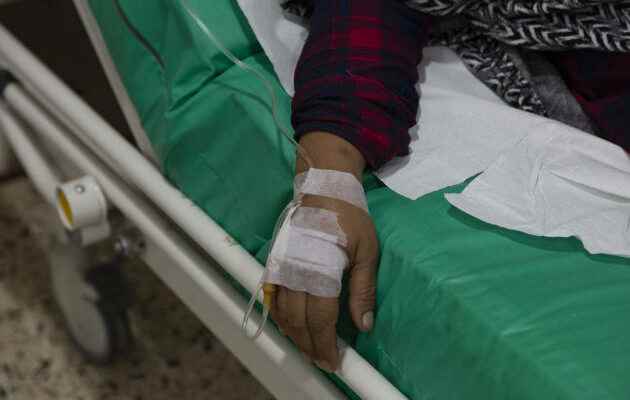Gharida Ajaj is recovering. In mid-October, the young woman was taken from “vomiting and severe pain. I had drunk water while visiting family. I immediately thought I had cholera. I was scared, because people died from it in our region”, says the 21-year-old student, on the terrace of the building where she lives with her parents in the center of Bebnine. It is in this locality of the poor district of Akkar, in the north of Lebanon, that the acute diarrheal disease appeared at the beginning of October, in the wake of the epidemic which has been raging in Syria since August.
The inhabitants of Bebnine have every reason to feel threatened: the small town planted on a steep hill, where Lebanese and Syrian refugees live, has the highest number of confirmed cases of infection, out of the 400 recorded in Lebanon; 18 people died in the country, where the suspected cases number more than 1,400. The feeling of marginalization, old in Akkar, is reinforced: the infrastructures are totally failing.
Khaldiya, Gharida’s mother, storms in the face of this degradation. Garbage cans are piling up in the streets. “They are no longer collected regularly. Of course there will be diseases! », she exclaims. On a sloping street, a pick-up loaded with rubbish drops some on the way. The stairwell leading to the Ajajs’ apartment is plunged into darkness. “We have had no public electricity for three or four months. Our water does not come from the State, but from a source in Bebnine: we have to run the generator, and therefore be able to buy gasoline, for the pump to work”, she adds. On the terrace of the neighboring building, women are arguing about filling the cisterns.
Polluted irrigation canal
The panorama is extensive, from the sea to the mountains. In the direction of the coast, we can see agricultural greenhouses. This is where Ahmad Ajaj, Gharida’s father, has his fields. Courgettes, in this season, and mint. “The irrigation canal that crosses Bebnine is polluted, waste is thrown away. When the water comes here, it’s contaminated. And sewage is pouring into it”he fumes, pointing to the pipes. “To get out of the psychosis, the authorities must analyze the water sources in Bebnine and trash cans, and take action! », urges the farmer. He filters the water that irrigates his fields. Other farmers did not make this investment. Ahmad Ajaj fears that local production will be stigmatized due to the epidemic.
You have 65.45% of this article left to read. The following is for subscribers only.
